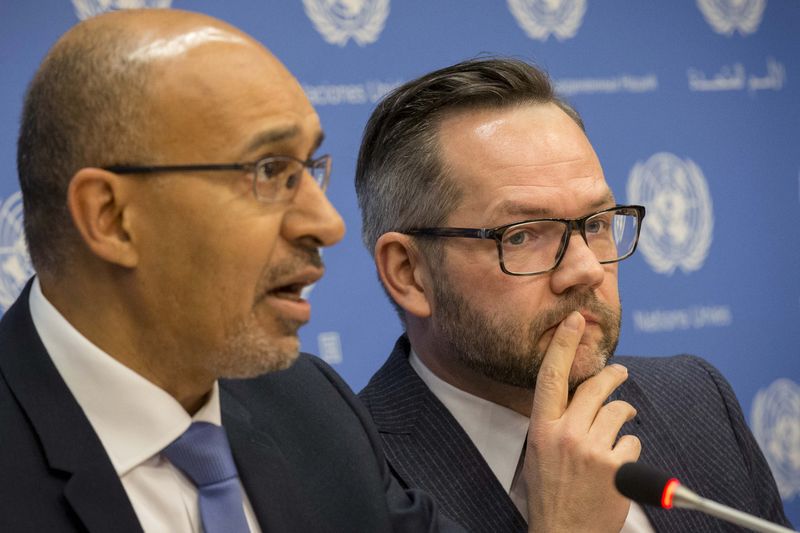By Louis Charbonneau
UNITED NATIONS (Reuters) - France appealed on Thursday for U.N. member states to work together on an international legal framework that would make social network providers share responsibility for the use of their platforms to spread messages promoting violence.
"There are hate videos, calls for death, propaganda that has not been responded to, and we need to respond," Harlem Desir, French state secretary for European affairs, told reporters on the sidelines of a U.N. General Assembly meeting on the rising threat of anti-Semitism.
The French call for a radical shift in the way governments treat social networking companies such as Facebook and Twitter came two weeks after Islamist militants killed 17 people in Paris at a satirical magazine and a Kosher supermarket.
"We must limit the dissemination of these messages," Desir said. "We must ... establish a legal framework so the Internet platforms, the large companies managing social networking, so that they're called upon to act responsibly."
The U.S. Ambassador to the United Nations, Samantha Power, described Desir's call as an "interesting proposal" that would have to be discussed with civil society and the private sector. Power also emphasized the importance of protecting free speech.
"We're very alert to the extent to which social media platforms are being exploited by violent extremists across the board, including by al Qaeda and Islamic State," Power said.
Desir called for an international conference to discuss the issue and Power suggested countries should pool their best practices.
Western governments have cited the use of social networks by Islamic State militants to entice young foreign fighters to Syria and Iraq, where government and U.N. officials say they have participated in beheadings, massacres and other war crimes. More French have joined Islamic State than any other nationality.
Michael Roth, German minister of state for Europe, also supported France's appeal.
France announced this week it would boost national security and intelligence personnel. But this is not enough, Desir said. The world should target militants' use of the Internet and social networks. He cited child pornography, which social networking companies have banned, saying it should be the same with calls for hatred and violence.

"We believe that the racist remarks, anti-Semitic remarks, spread through the Internet today or in other media do not fall in the category of expressing an opinion," he said. "Rather there should be law that allows for us to suppress a rejection of others and a call for violence and a call for death."